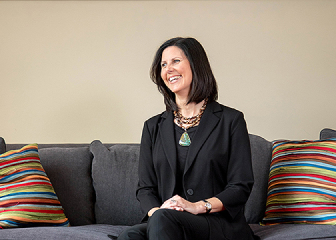The long-term impacts of eviction create significant obstacles to housing and family security and economic mobility. Evidence suggests that eviction is not merely a symptom of poverty, but also a cause of it. People who experience eviction are more likely to lose their jobs, experience depression, and rate their health as fair or poor. Households that move as a result of an eviction, rather than by choice, move to poorer, higher crime neighborhoods and are more likely to experience problems with their new housing like broken appliances, exposed wires, or lack of heat. This is due in large part to the fact that once a judgment is entered against them it is difficult to secure future housing (Collison and Reed, 2018).
The housing market in Chattanooga has changed substantially in the past two years and rising home prices reflect a growing interest in our city from outside investors. In 2022 the area median home sales price was $305,000. This represents a 15.1% increase over the 2021 median and an almost 135% increase over the 2010 median home sale price of $130,000. The median home price in August 2023 had already increased to $330,000 (Greater Chattanooga Realtors). As a result of this "seller's market", small "mom and pop" landlords may be incentivized to sell their property to a high bidder, or otherwise raise rents on properties that may be a source of relied-upon income.
Despite rising costs, many working families have not seen an increase in wages. The 2022 5-year American Community Survey data shows that the median Chattanooga household annual income was $57,703. Recent data on families that fall into the classification of ALICE (Asset Limited, Income Constrained, Employed) show that 26% of Hamilton County residents struggle to pay for basic living expenses such as groceries and utilities.
Tenants experience increased difficulty finding and maintaining affordable rental units. In February 2022, the Chattanooga Times Free Press reported a 15.2% year-over-year increase in rental rates for a two-bedroom [iv]. Rates increased 18.3% between 2022 and 2023 as reported by the TFP in August 2023, for an average of $1,550 at the time [v]. The Department of Housing and Urban Development (HUD) considers households spending more than 30% of their monthly income ($1,443 per month in looking at the median Chattanooga household income) on housing expenses including rent and utilities to be "housing cost-burdened".
By connecting tenants with attorneys and social workers and utilizing coordinated funding to the benefit of both tenants and landlords, EPI is helping community members navigate a difficult housing landscape and easing the economic impact of housing prices and inflation increases.








